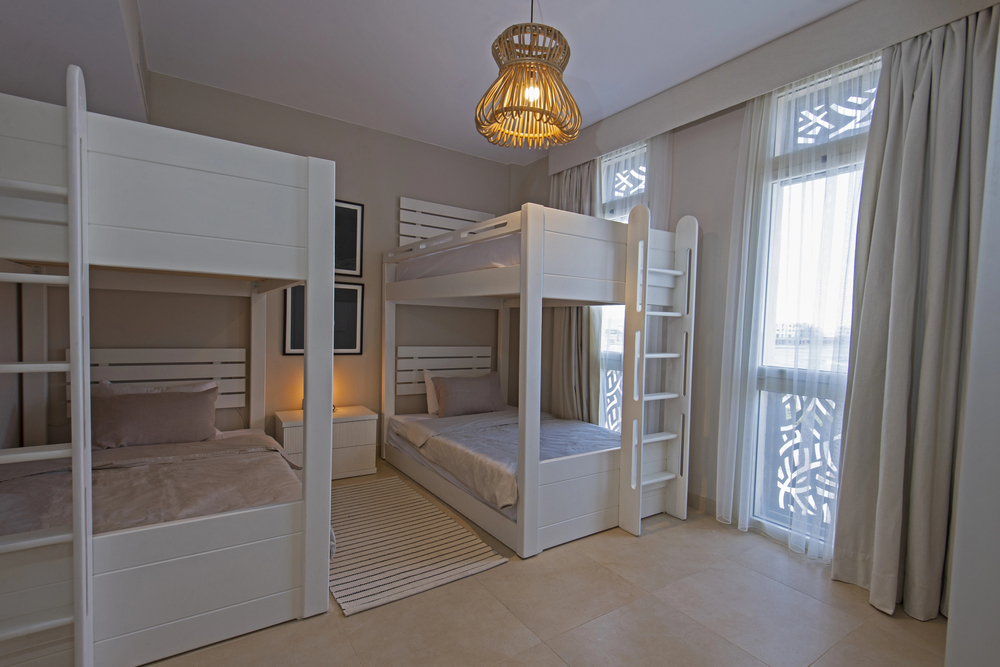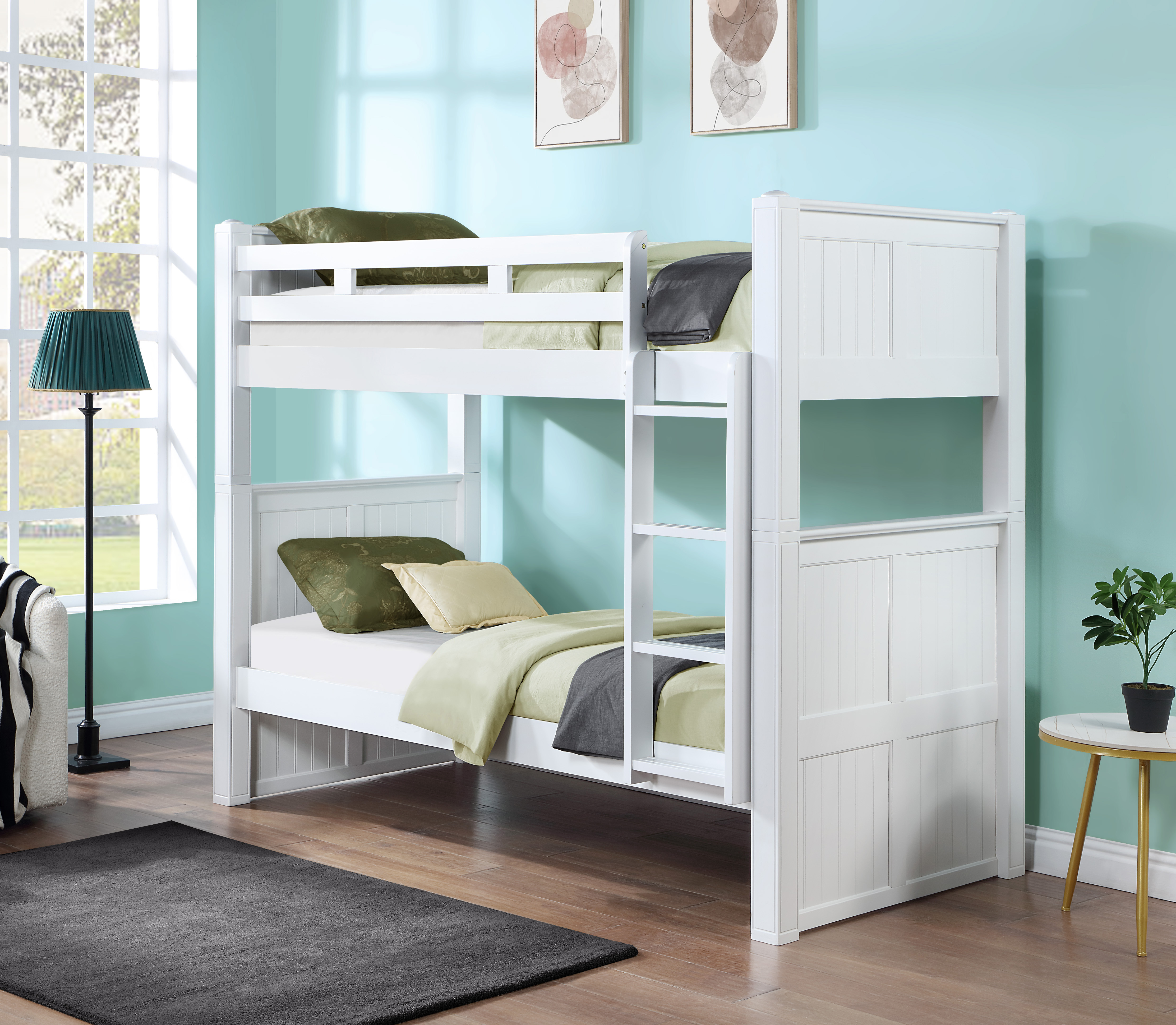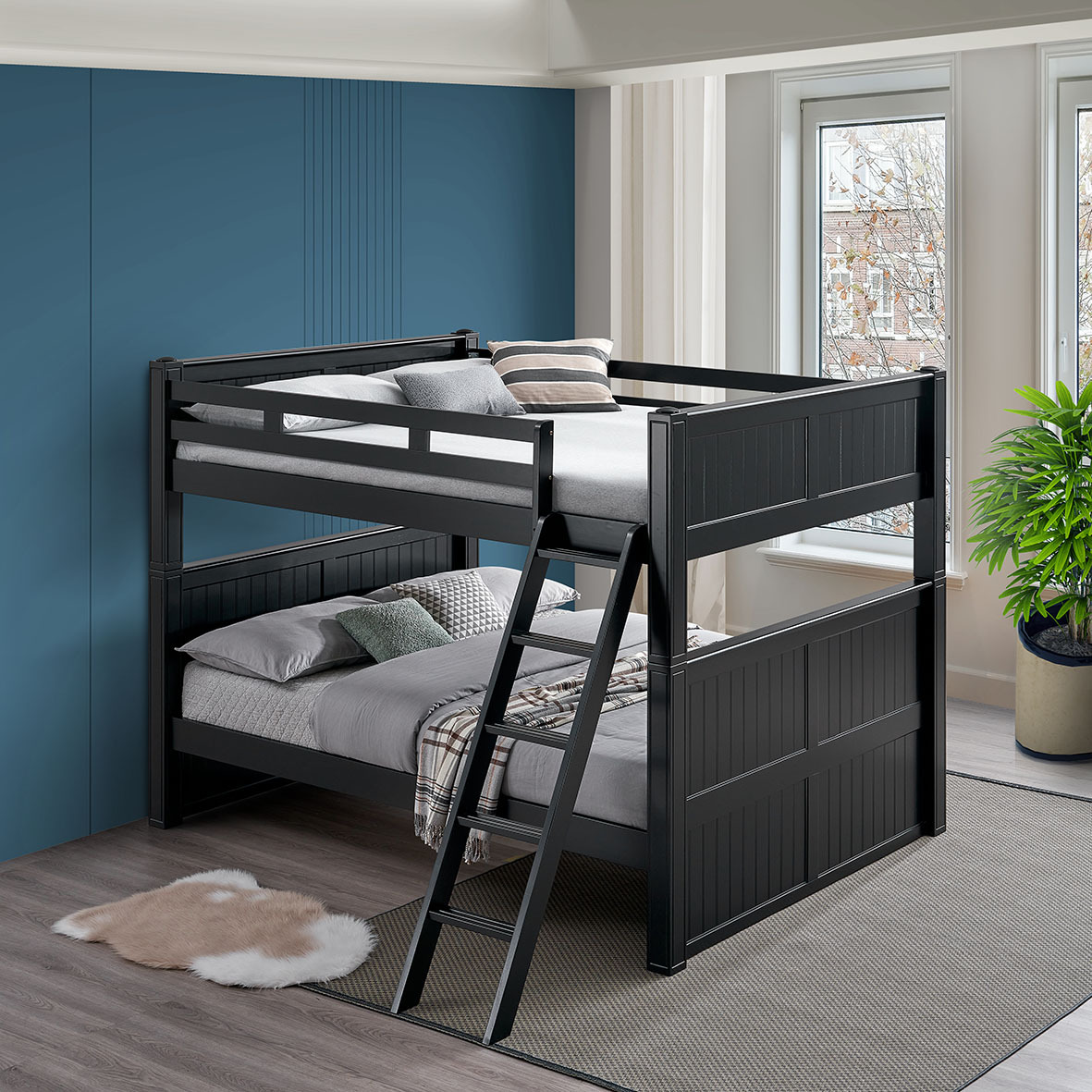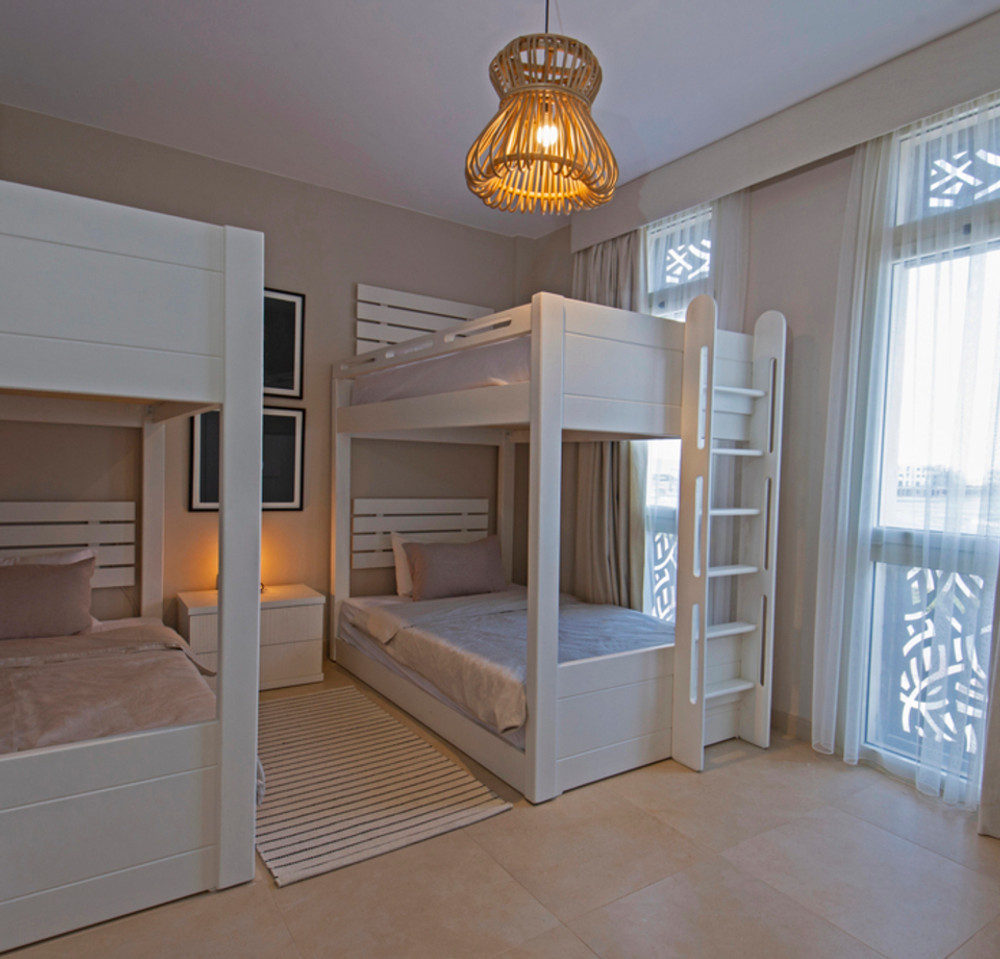How Thick Should A Bunk Bed Mattress Be?
Posted by UPW on Sep 21st 2025

Many customers have asked, "How thick should a bunk bed mattress be?" Mattress thickness significantly impacts comfort, safety, and the overall functionality of the bunk bed. Seeming like a small detail, choosing the correct mattress thickness is critical for a good night’s sleep and safe use of the bed.
This guide will cover factors to consider when choosing the ideal mattress thickness for your bunk bed, helping you make a well-informed decision.
The Ideal Mattress Thickness for Bunk Beds
So, how thick should a bunk bed mattress be? In general, we recommend a mattress thickness between 6 inches and 8 inches for standard bunk beds. This range strikes the perfect balance between comfort and safety while making sure the mattress fits securely in the bed frame.
Thicker mattresses over 8 inches can create problems, such as reducing headroom on the top bunk. Mattresses under 6 inches may not provide enough support for restful sleep or proper durability.
Why Mattress Thickness Matters
Choosing the right mattress thickness is not just about comfort, but also about safety. If the mattress is too thick, it can create issues with upper guardrails, as 5” clearance is required between top of mattress and top of guardrail.
Let’s break down why the mattress thickness you choose matters for both comfort and safety.
- Comfort: The Right Balance of Support
The ideal thickness gives sleepers the support needed for a restful night. Mattresses thinner than 6 inches may lack cushioning, which can be uncomfortable for heavier individuals.
Conversely, mattresses thicker than 8 inches might feel too firm, particularly if the bed slats are widely spaced. A medium-thickness mattress in the 6 to 8-inch range provides balanced comfort and works well with a strong bed frame.
- Safety: Headroom and Stability
The space between the top bunk and the ceiling is a crucial factor when choosing mattress thickness. A mattress that is too thick can limit headroom, making it uncomfortable to sit up in bed. In some cases, it can also cause the area to feel cramped, particularly for taller sleepers.
Selecting the proper mattress thickness allows enough clearance for safe and comfortable movement on the top bunk. Adults generally benefit from a mattress around 6 inches thick. On the other hand, children are usually comfortable with a mattress between 6 and 8 inches.

What Happens with Thicker Mattresses?
A mattress thicker than 8 inches can pose several problems for bunk beds. The most obvious issue is the clearance between the top bunk and the ceiling. With extra thickness, you may find it difficult to sit up comfortably without hitting your head. In some cases, the top bunk may even feel claustrophobic.
Also, thicker mattresses can make it difficult to securely fit the mattress into the frame. If you choose a mattress that’s too thick for your bunk bed frame, it may not fit properly, which could affect the bed’s overall stability.
What Happens with Thinner Mattresses?
On the other end of the spectrum, choosing a mattress that is too thin can also lead to problems.
A mattress thinner than 6 inches can lack the necessary padding and lead to a rougher sleeping surface. It may not support body weight adequately, causing discomfort and poor sleep quality. Thin mattresses are also more prone to sagging over time, which can cause lasting issues for sleepers.
How to Choose the Right Mattress Thickness Based on Usage
The best mattress thickness for a bunk bed can also depend on the type of sleeper and the use of the bed. Here are a few things to keep in mind when deciding:
For Kids
If you are purchasing a bunk bed mattress for a child, you will likely want a mattress that offers both comfort and durability. A mattress thickness between 6 and 8 inches works best. Children need enough support for healthy sleep, but they also need a mattress that is not too thick to compromise safety.
For Adults
For adult-sized bunk beds, we typically recommend a 6-inch mattress. This guarantees that there is adequate support for the sleeper while still maintaining enough clearance between the top bunk and the ceiling. With adult bunk beds, it is important to keep both comfort and headroom in mind.
For Heavy Individuals
If the sleeper is heavier, you may need to consider a slightly thicker mattress (closer to 8 inches) to ensure adequate support. Heavier individuals need a mattress that can evenly distribute their weight. Opting for a thicker mattress with a higher density can prevent sagging and provide better support.
For a Guest Room or Occasional Use
If the bunk bed is being used for occasional guests or as a temporary sleeping arrangement, you might want to choose a slightly thicker mattress, around 8 inches, for added comfort. Since it will not be used every day, comfort is a priority, but you can afford to sacrifice a little headroom if necessary.

How to Measure Mattress Thickness
When selecting a mattress, it is important to measure the thickness correctly. Here's how you can do it:
- Measure from the Mattress Base to the Top: Lay the mattress flat on the floor or bed frame. Use a tape measure to measure from the bottom of the mattress to the top. This is your mattress thickness.
- Consider Mattress Type: Different mattress types can have varying thicknesses. Memory foam mattresses tend to be thicker than traditional innerspring mattresses, but they deliver great comfort and support. Hybrid mattresses that combine memory foam with springs offer a good middle ground.
- Check the Bed Frame: Make sure the mattress fits into the frame properly. A mattress that is too thick or too thin might not sit properly in the bunk bed frame, which could cause discomfort or safety concerns.
The Best Mattress Materials for Bunk Beds
Choosing the right mattress thickness also involves considering the materials used. Different mattress types provide varying levels of comfort, support, and suitability for bunk beds. Here are some common options:
- Memory Foam: Memory foam mattresses are a popular choice because they contour to the body and offer excellent support. Typically ranging from 6 to 8 inches in thickness, they deliver comfort without significantly reducing headroom.
- Innerspring: Innerspring mattresses are usually thinner than memory foam and work well in bunk beds where space is limited. They bring a firmer feel and traditional support.
- Hybrid: Hybrid mattresses combine memory foam with innerspring coils and give the benefits of both materials. While slightly thicker, they remain practical for bunk beds when proper clearance is maintained.
- Latex: Latex mattresses are durable and breathable, providing a firmer sleeping surface for those who prefer extra support. They are also commonly available in the 6 to 8-inch range.
When asking "how thick should a bunk bed mattress be," remember that the ideal mattress thickness falls between 6 and 8 inches for most situations. This ensures enough comfort and support for the sleeper while maintaining the safety of having sufficient headroom in the top bunk.
We understand how important it is to find the right mattress for your bunk bed. Whether you need a mattress for a child, adult, or guest room, we present a variety of options to guarantee the perfect fit. If you have any questions or need assistance, do not hesitate to give us a call or shop online. We are here to help you find the best solution for your space.

